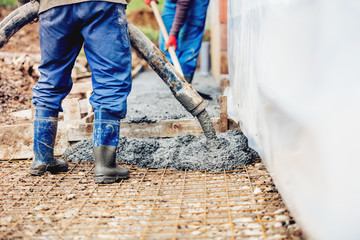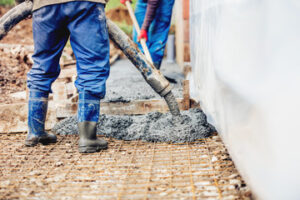Water damage, pest infestation, and mold can damage or compromise insulation, leading to a wide array of problems, including health hazards and structural issues in the home.
Preparing and taking safety precautions is important before beginning the insulation removal process. This includes wearing protective gear, sealing the work area, and working in a well-ventilated space. Click the Insulation Removal Perth to learn more.

Damaged, soiled, or contaminated insulation can pose a health risk to property occupants and increase the strain on heating and cooling systems, leading to increased energy costs. Insulation contractors offer effective solutions to repair these issues, enhance indoor environmental quality, stabilize room temperatures, and lower utility bills.
Using professional tools, insulation removal professionals can safely remove old insulation without damaging the underlying walls of the property. They first inspect the area to determine the type of insulation present and any potential hazards that may arise during the removal process. They then use specialized equipment to vacuum or scrape away the insulation from walls, attics, or crawl spaces, taking care to avoid damage. Once the old insulation is removed, they will sanitize and seal the area to prevent mold growth and other contaminants.
Inconsistent room temperatures and unusual smells are signs that the existing insulation is degrading. In addition, signs of pest infestation or rodent activity indicate the need to replace the insulation. Insulation experts can evaluate the situation and suggest a plan for replacement.
When choosing a professional contractor, look for one that offers a warranty to guarantee their work. This will give you peace of mind that your new insulation will be installed properly and efficiently, and any issues that could arise will be fixed within a specified timeframe.
The most important thing to consider is the experience and track record of the insulation contractors. Ensure they have the proper licenses and insurance to operate in your local area. They should also have a good reputation for providing high-quality service and customer satisfaction.
If you decide to do the job yourself, expect it to take a lot of time. You will need to purchase or rent the necessary equipment such as a heavy-duty shop vac and large bags for old insulation disposal. It’s also a good idea to have help on hand to reduce the amount of time required for the job.
It is a good idea to hire a professional for insulation removal and replacement, as the job can be dangerous and difficult for inexperienced homeowners. Additionally, professional contractors know how to properly dispose of hazardous materials such as asbestos.
Pests
Insulation is a common target for pests like rodents, raccoons, and squirrels. Their strong teeth chew through fiberglass and cellulose insulation to create nests, leaving gaps that reduce its ability to regulate temperatures. They also gnaw on wires running through attics, which can increase your electrical bills and pose a fire risk. Additionally, pest droppings and urine contaminate the insulation with dangerous diseases, including hantavirus from rodent droppings and histoplasmosis from bat guano.
Rodents and other pests can make their way into attics through damaged eaves or vents, while birds and bats may gain entry through unscreened chimneys. They then take advantage of the warm attic space to build nests, tunnel through insulation, and create a messy fecal mess. This contamination affects your indoor air quality and can spread to other parts of your home, causing health problems for sensitive individuals.
Professional pest control services can inspect your attic for signs of pests, such as urine stains and chewed insulation. They can also identify and seal entry points to prevent future pest infiltration, helping you protect your health and save money on energy costs.
If you have severe infestations, a professional can remove and replace the old insulation. This process involves sanitizing the attic, decontaminating any contaminated areas, and then installing new insulation that is pest-resistant. It’s also wise to have pest control professionals inspect and service your attic on a regular basis, which will help catch signs of damage before an infestation becomes out of hand.
In addition to having a pest control service in place, you can also work to prevent infestations by sealing entry points to your home, maintaining proper ventilation, and trimming back vegetation. You can also work with your pest management specialist to install the right kind of insulation, as many modern options are designed to repel pests and resist moisture. Having the right insulation helps your home stay safe and healthy, regardless of the season.
Health
Insulation is an important component of a healthy home and can be a critical part of keeping the house warm and reducing energy bills. If you notice signs that your insulation is damaged or in need of replacement, you should contact a professional contractor. They have the experience and tools necessary to perform insulation removal safely, effectively, and efficiently.
Some of the most common signs that your insulation needs to be replaced include a musty smell, water damage, and uneven temperatures in different parts of the house. These problems can lead to discomfort, health issues, and increased energy costs. If left untreated, they can also cause structural damage to your home.
In addition, a musty smell is an indicator of mold growth, which can lead to respiratory problems. In the case of black mold, exposure can lead to chronic coughing, sneezing, and irritation to the eyes, mucous membranes, and nose. If you have any mold in your attic, it is crucial to remove the insulation and address the source of the problem.
If you live in an older home, you may be dealing with contaminated insulation materials that pose a risk to your family’s health. These materials include urea formaldehyde and asbestos, which are now banned from being used in homes. If you have this type of insulation in your home, it should be removed by a professional who is familiar with local regulations on how to dispose of these hazardous materials.
It is important to turn off any power sources in your attic before starting the removal process. Insulation can contain live wires, which could cause serious electrical damage if they are mishandled or cut. Turning off the power eliminates this risk and creates a safer working environment for all involved.
It is also a good idea to contact a professional for periodic insulation inspections. They will use infrared technology to scan your attic, look for leaks, and check for any moisture or pest problems. By having this work done on a regular basis, you can prevent costly insulation repairs and replacements and maintain optimal thermal protection for your home.
Safety
Insulation removal can be a dangerous task if not done correctly. It involves accessing areas in walls, attics, and crawl spaces where contaminants may be hiding. This requires specialized equipment that can remove insulation without spreading contaminated particles and fibers throughout the property. It also requires proper ventilation and adherence to safety protocols, particularly for materials that contain asbestos. Local regulations vary in terms of how old insulation must be handled and disposed of, so professionals are required to stay up to date with the latest requirements.
Some homeowners choose to remove their attic insulation in order to improve energy efficiency. Others do so in response to pest infestation or signs of mold growth. Other reasons for removing insulation include renovations and remodels that require access to the attic. Inconsistent indoor temperatures, which indicate air leaks or a lack of effective insulation, are another sign that it is time to replace the insulation.
Before the actual insulation removal process begins, professionals must prepare the work area. This includes sealing off vents, covering furniture or valuables, and creating barriers that prevent the spread of contamination. They may also wet down the materials in order to minimize the release of harmful toxins and to reduce the likelihood of mold or asbestos becoming airborne. They may also use negative air machines and high-powered vacuums to safely suck out the old insulation.
If the old insulation is made from fiberglass, it can be discarded in designated recycling facilities or landfills that accept construction waste. It can also be compressed and used to create new fiberglass insulation products. If it is cellulose, it can be processed and recycled into biofuel, and if it is organic, it can be turned into garden mulch.
When hiring a professional to perform the insulation removal, look for one that follows strict environmental protocols and uses green demolition techniques. Green demolition focuses on salvaging reusable materials, including insulation, rather than simply disposing of them in landfills. This reduces the need for new materials, cuts down on waste, and lowers the risk of harmful chemicals or fibers contaminating the environment.








